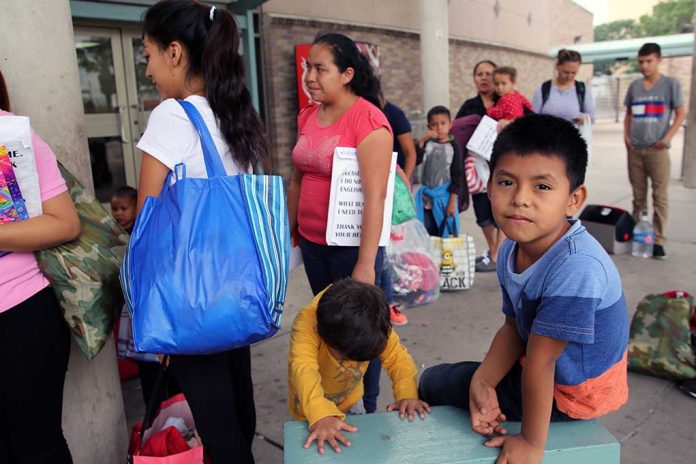
Tennessee’s Department of Children’s Services is being sued for warehousing foster children in spaces lacking “the necessities of life,” exposing a system in crisis where over 9,000 vulnerable youth face dangerous conditions and neglect.
Key Takeaways
- A class-action lawsuit representing 13 children (ages 1-16) on behalf of over 9,000 in Tennessee’s foster system accuses the state of systemic failures and unsafe conditions
- Children are allegedly being kept in temporary placements for months without adequate food, bedding, soap, and potable water while experiencing frequent disruptive relocations
- The lawsuit claims conditions deteriorated after federal court oversight ended in 2017, with caseworkers described as “overworked and undertrained”
- Tennessee ranks #1 nationally for frequent foster child relocations, with 33.7% of children moved three or more times in their first year
- Plaintiffs seek remedies including lower caseloads for workers, better vetting of foster homes, and increased efforts to place children in permanent homes
Children Seeking Protection from Their Protectors
In a devastating indictment of Tennessee’s child welfare system, a group of foster children has filed a federal class-action lawsuit against the state’s Department of Children’s Services (DCS). The legal action, filed in the U.S. District Court for the Middle District of Tennessee, represents 13 children ranging from toddlers to teenagers who claim the very system designed to protect them is instead endangering their well-being. The lawsuit alleges that DCS “warehouses children in spaces which lack the necessities of life,” according to court documents filed on behalf of over 9,000 children currently in state custody.
“Warehouses children in spaces which lack the necessities of life.”- lawsuit
The children are represented by A Better Childhood, a national non-profit advocacy organization currently involved in 11 similar lawsuits nationwide, alongside the law firm Bass, Berry, and Sims. The lawsuit reveals how temporary transitional homes, originally created after reports emerged of children sleeping in state office buildings due to placement shortages, have become long-term holding facilities for vulnerable youth. These transitional placements, according to plaintiffs, lack basic necessities and proper supervision while subjecting children to dangerous living conditions.
A System in Rapid Decline Since Federal Oversight Ended
This isn’t the first time Tennessee’s foster care system has faced legal challenges. A previous class-action lawsuit in 2000 resulted in federal court oversight that lasted until 2017. The new lawsuit argues that since that oversight ended, the system has deteriorated dramatically, depriving children of their basic constitutional rights. The plaintiffs claim caseworkers are severely overwhelmed, carrying excessive caseloads while lacking proper training to handle the complex needs of children in state custody.
“intended as temporary placements, DCS leaves children in these situations for months on end.” – lawsuit
The stark contrast between official statements about progress and the reality on the ground is highlighted by comments from Jim Henry, who has previously defended the system. “We’ve got to be honest: we didn’t have a system here in 2000. I mean, we deserved to get a lawsuit. The fact is, we’re a much better system now. We’re better off for it, the kids are better off and I think the taxpayers are better off,” Henry stated. However, the current lawsuit and evidence presented paint a very different picture of the system’s actual condition.
Children Bounced Between Placements Without Stability
Among the most disturbing allegations is the frequent relocation of children within the system. A 2020 report ranked Tennessee number one nationally for excessive foster child relocations, with 33.7% of children moved three or more times in their first year alone. These constant upheavals prevent children from forming stable attachments and severely disrupt their educational and emotional development. The lawsuit details specific cases, including that of Dewayne W., who has experienced multiple placements and unsafe conditions, and Jasmine G., who was trafficked and sent to an out-of-state facility.
“Overworked and undertrained.” – lawsuit
The lawsuit seeks substantial reforms, including reducing caseloads for caseworkers, implementing better vetting procedures for foster homes, and making meaningful efforts to find permanent homes for children languishing in the system. These reforms would address the fundamental assertion that “foster care in Tennessee is not temporary,” with children instead trapped in an unstable system for extended periods. When approached for comment, the Department of Children’s Services referred inquiries to the Tennessee Attorney General’s office, which declined to comment on the pending litigation.





